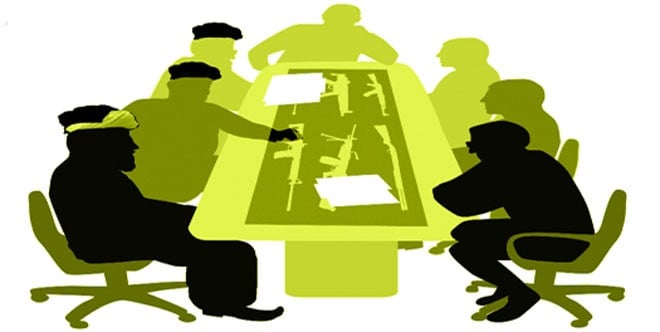

Will negotiations contribute to violence or help reduce them? If they reduce violence, will they contribute to an already-ongoing negative transformation of Pakistani society into one that is dominated by arbitrary violence, coercive politics, religious authoritarianism, intolerance of dissent and persecution of unrepresented people?
Though many commentators seem to know exactly how to answer this question, for the moment I will assume that it is unanswerable. Instead, the different meanings being attached to the now-underway negotiations should be paid some attention.
The talks have opened up the question of sharia in a hitherto unprecedented way. Reading through the pro- and anti-talks debate unfolding in the national media just now, it is clear that of the concerns that preoccupy those against negotiations, the re-opened question of sharia evokes some of the most troubled reactions. (The others are: conferring legitimacy on an anti-constitution violent force, setting the wrong precedent for law enforcement by negotiating with criminals, undermining the theoretical concept of the state by compromising its ability to be the sole user of violence).
This is not hard to understand. It is because the talks are an opportunity to restate the case for Pakistan to adopt an ‘Islamicised’ law for its state and officially sanctioned Islamic codes in everyday life. This, it is argued, is the logical culmination of the identitarian Muslim state that was founded in 1947, and a development which has been thwarted by the hypocrisy of certain influential sections of society. These ‘conspiring’ sections of society have never exactly had the courage to say that they are against sharia or that sharia ought not to be enforced. Instead, they have blocked it on various grounds: that it is unenforceable because of sectarian divisions, that it contradicts international norms of law and human rights and would isolate Pakistan, and that the already present Islamic provisions in the constitution are sufficient guarantee of the Islamic character of the state and should be accepted as a line of control that for all practical purposes is permanent.
Against this, advocates of sharia advance a mixed arsenal of arguments, ranging from the visionary to the abjectly reactionary. Sharia comes to assume, in their discourse, something like an unfulfilled promise of equality and justice, a grand project of social engineering whose scope is limitless, a romantic and metaphysical utopia, which is able to unite and inspire society and give direction to political action.
The reactionary arguments for sharia are mainly of two types. They ask what the least common denominators of sharia are: on what do ‘we’ agree as undeniably Islamic? And, they ask, who wants to see us deprived of our Islamic identity? The answer to these questions taps into the reservoir of social conservatism (present in varying degrees anywhere) that pools fears of losing control and identity, of seeing rapid and confusing change, of loosening traditional bonds of hierarchy and privilege. In Pakistan’s case, it translates into: no drinking, no sexual freedom, no co-education, purdah, no interest, no repeal of any laws labeled Islamic, and nothing that overlaps with the ways of life seemingly espoused by the other and the outsider -- West, Hindu, Ahmadi, Shia. The list can expand and probably will.
It’s clear to anyone, even perhaps to the pro-sharia themselves, that these demands subtract everything that is not only problematic and divisive but promising and complex in religion to arrive at a loosely defined religious social practice that really affirms a refusal to change or to think. It affirms a reactionary social conservatism, and with reason.
Yet, being able to see this doesn’t necessarily amount to a discourse that can challenge it. Whatever else the negotiatory process may or may not accomplish, it will fling open the door on this question. As this happens, arguments on the religious right are bound to sound more persuasive because they are an abstraction and intensification of what many people think without thinking anyway. This, perhaps, is part of what commentators mean by ‘creeping Talibanisation’.
Yet, the deeper answer to this may not be to keep the door shut. In my view, there can be no victory or defeat on this, but only a transformation whose direction and momentum will be uncertain, and whose force will come from no one direction, certainly not those being called ‘liberals’ at the moment.
Intellectual monisms, whether of the left or right, may end up echoing each other. Education and constitution, the two banners under which any non-military action against Islamicisation is being conceived, will also not go far enough.
We know that it is not enough that education is given; who it is given by and what it is given for, changes its impact completely. A monotheism of state-and-constitution may also reproduce many of the intellectual moves of the reactionary rightist discourse. What is needed (and it can never be known in advance how it will work) is a genuinely open questioning that addresses our fears and does not reach for a consensus that depends on the least common factor that we can agree on.